Future-Forward Fashion

At ZAVI, we create fashion that transcends trending pieces designed to be worn every day, every time, and cherished forever. Our purpose is to craft high-quality, ethically made clothing that seamlessly fits into your lifestyle while reflecting the values of a modern, mindful community.

Rooted in sustainability, we are committed to using eco-friendly materials, responsible sourcing, and mindful production to reduce our environmental impact. By blending style with sustainability, we empower individuals to make fashion choices that are both elevated and earth-conscious.
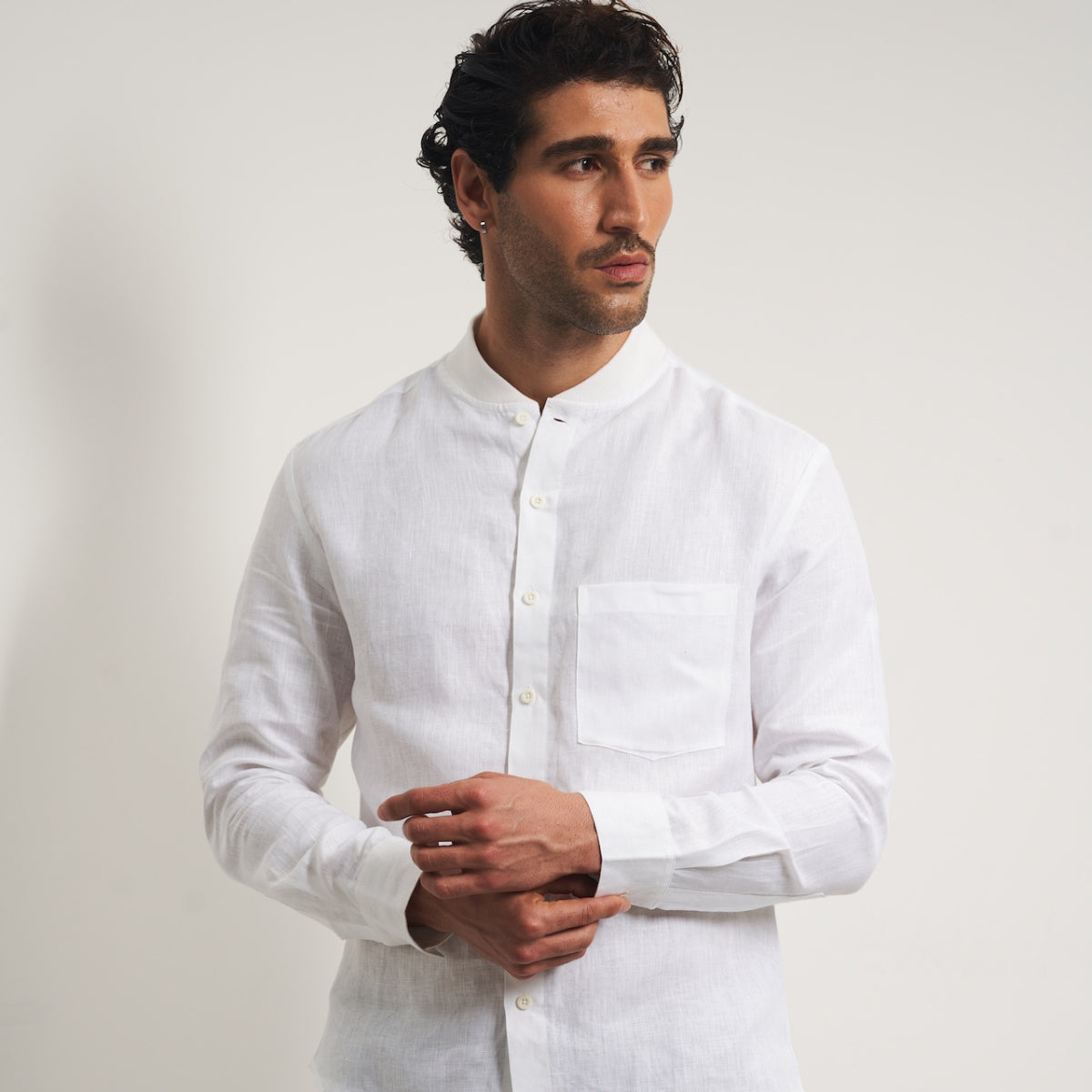
Our Measures
In an industry often clouded by opacity, we choose radical transparency. We believe trust is built through honesty, which is why we’re open about every step we take, and every stitch we make. From how we source our fabrics to how we price our pieces, nothing is left to guesswork. Our mission is simple: to empower conscious choices by showing you exactly where your money goes with every garment.

OUR Environmental policy
As a conscious clothing brand, we take full responsibility for the lifecycle of every garment we create. Sustainability isn’t a checkpoint, it’s a continuous journey. That’s why we’re committed to actively improving our practices, refining our processes, and seeking innovative solutions across our entire supply chain. Because for us, progress is never final, and our job is never truly done.
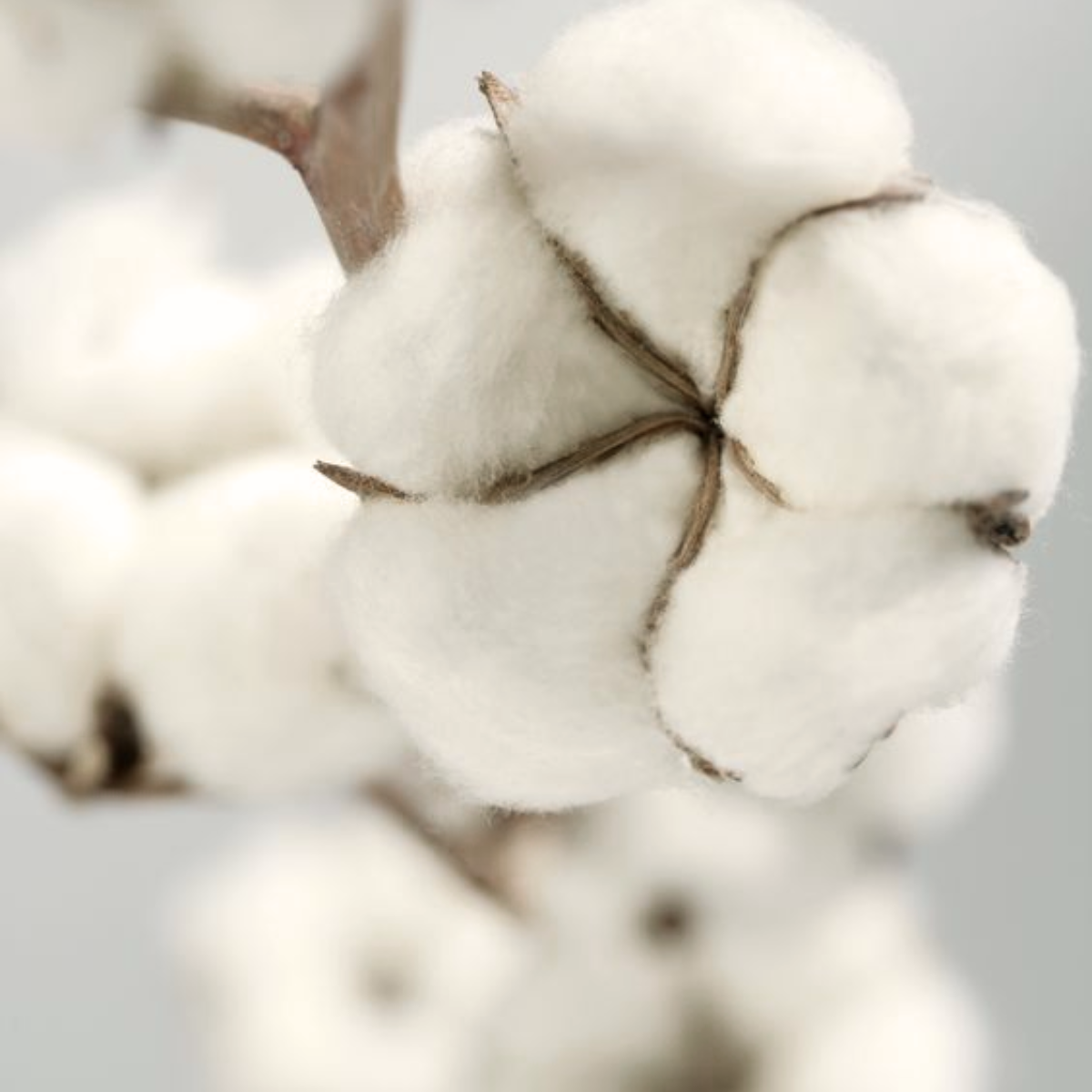
Organic Cotton
Grown without harmful pesticides, insecticides, herbicides or GMOs, our organic cotton supports both people and the planet. It uses 91% less water than conventional cotton and helps preserve healthier ecosystems. Naturally softer, more breathable and made to last, this is comfort with a conscience.
Fabric care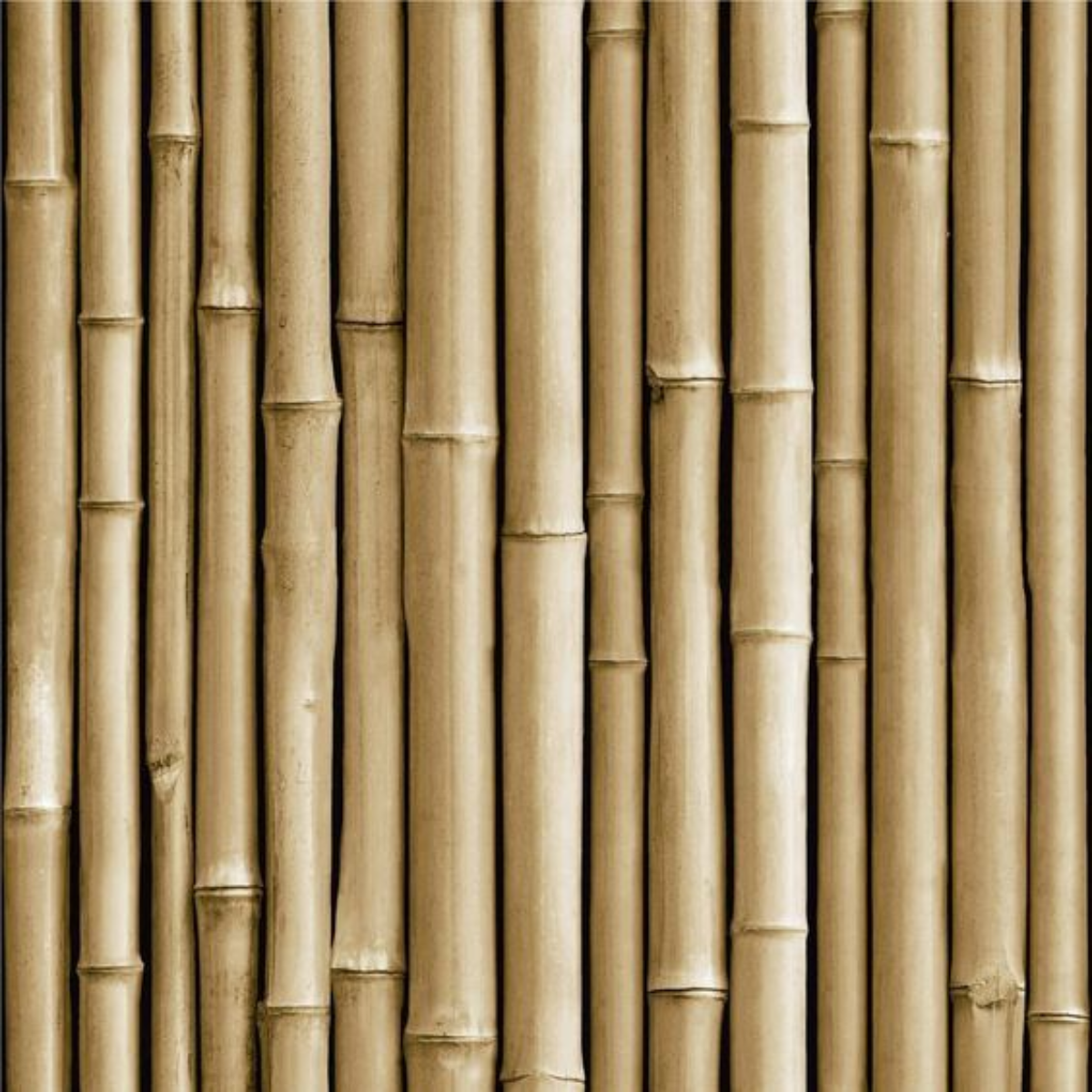
Bamboo
One acre of bamboo yields 10 times more than one acre of regular cotton and is grown without any pesticides or genetically modified organisms. The natural bamboo plant keeps itself cool in the heat and like its other properties, is also maintained in its fabric form.
Fabric Care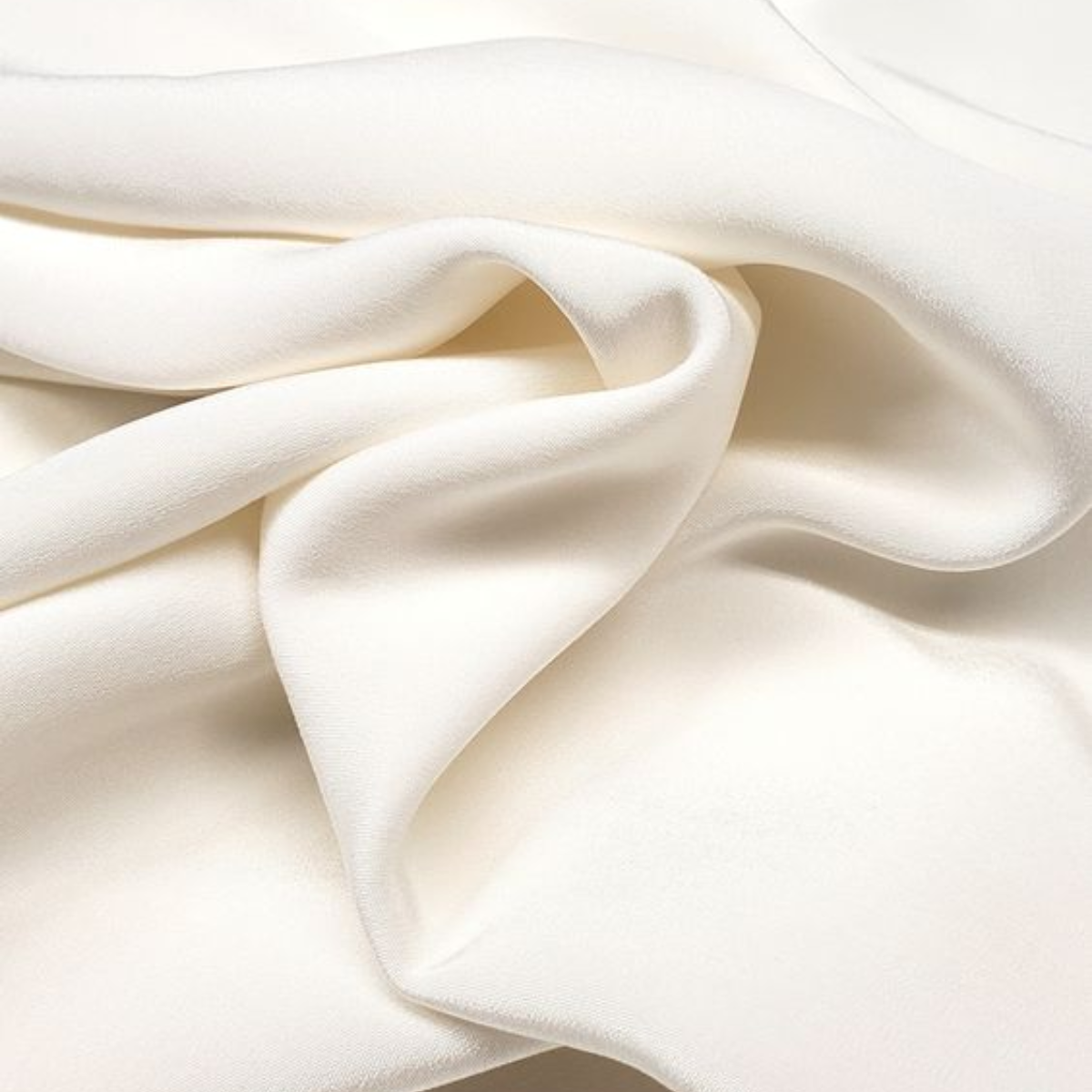
Peace Silk
Peace silk, also known as 'Eri' or 'Ahimsa' silk is a process that allows the completion of the metamorphosis of the silkworm to the butterfly, thus why it is also known as 'Vegan silk'. The fabric also possesses temperature regulating properties and is known to be hypoallergenic fabric.
Fabric Care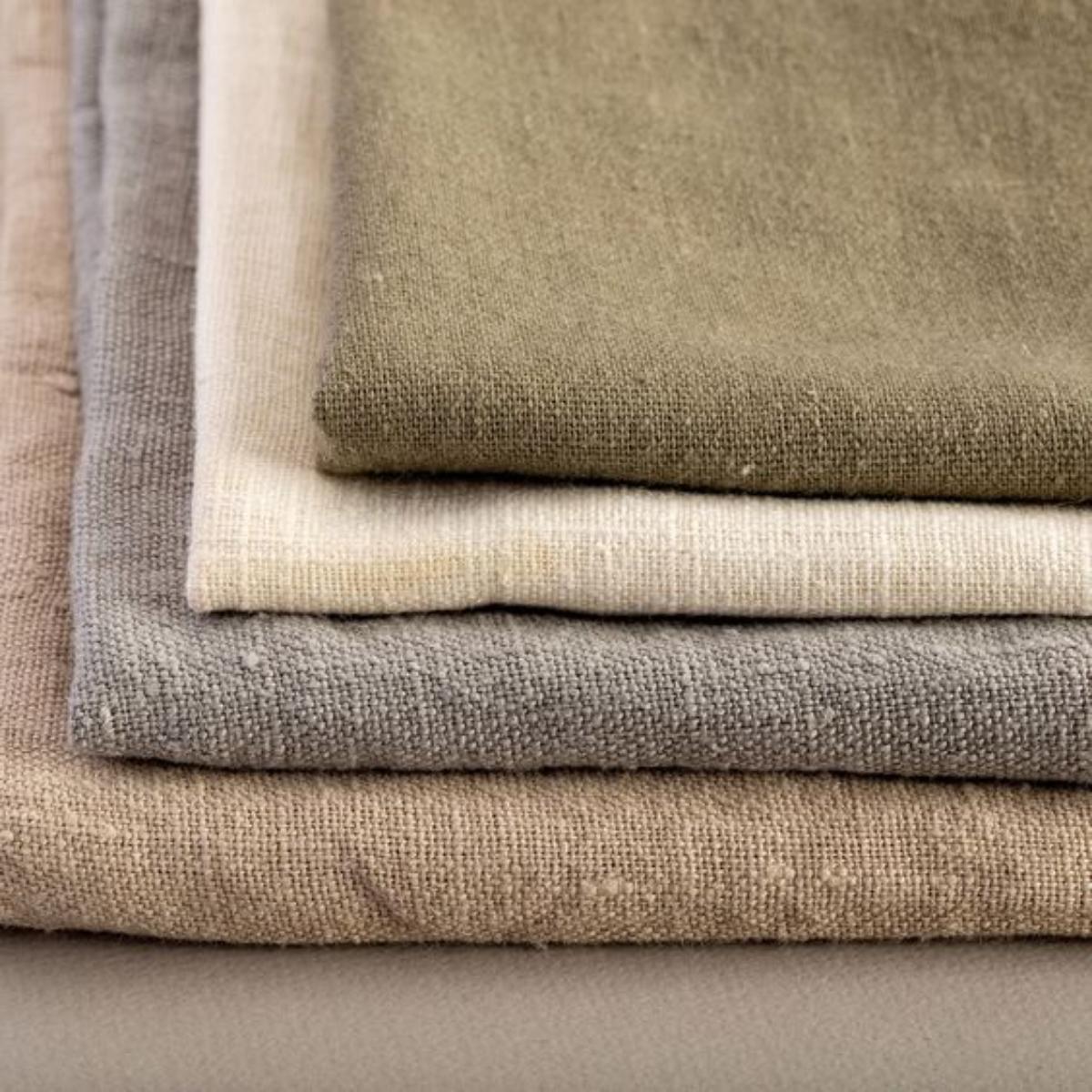
Hemp
Hemp is gentle on the earth and is active against microbes in nature which makes your clothes stay clean for longer and prevents it from developing odor-causing bacteria. Due to its antimicrobial properties, hemp is much stronger and more durable than most natural textile fibres.
Fabric Care
Lyocell
Lyocell uses very little energy and natural resources and is fully biodegradable. The fibre has high absorbency, which means fabrics can be dyed to high-quality standards. This eco fabric has natural breathability and impressive moisture absorption.
Fabric Care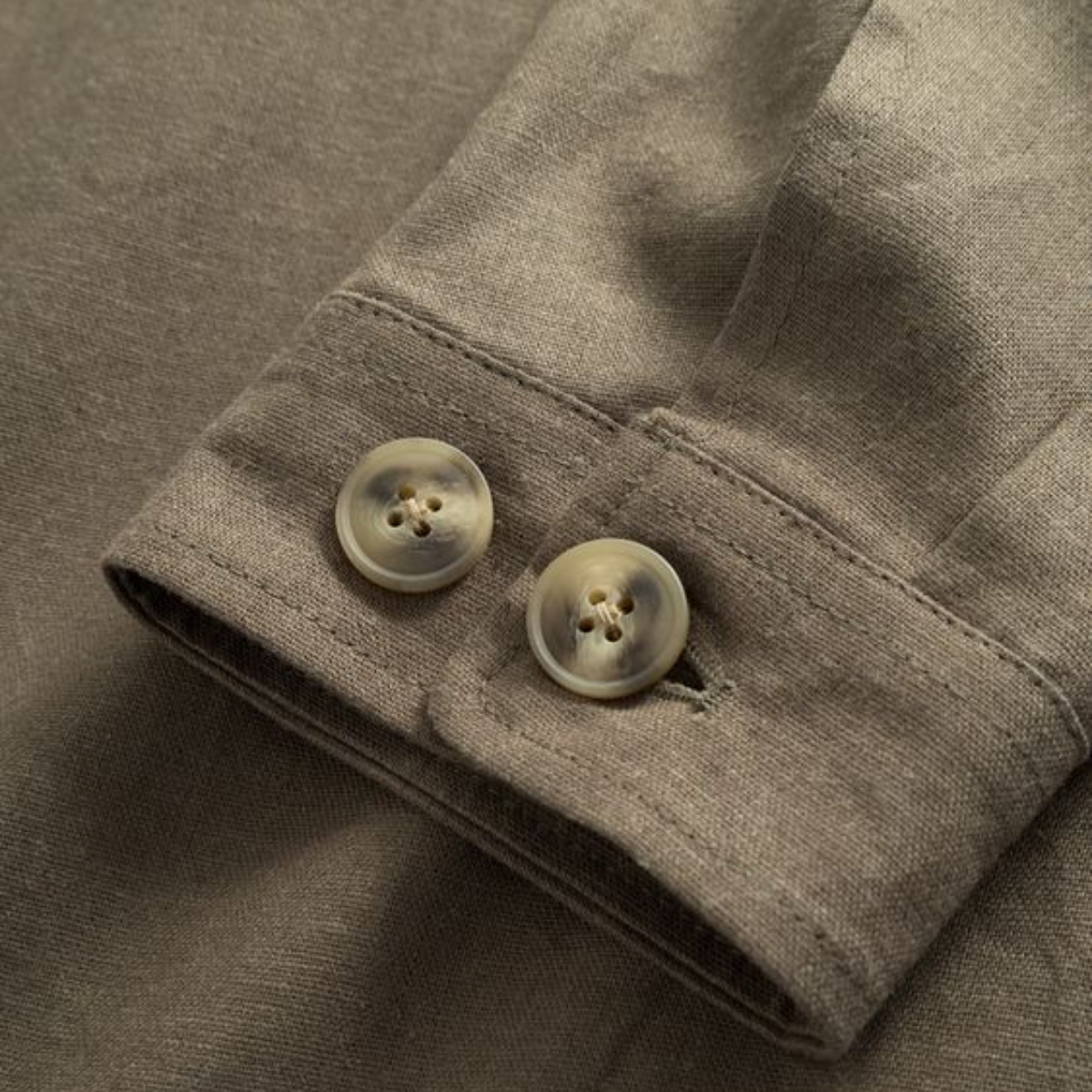
LENZING™ ECOVERO™
LENZING™ ECOVERO™ Viscose fibres are derived from sustainable wood and pulp, coming from certified and controlled sources. These fibres meet high environmental standards throughout their life cycle: from raw material extraction to production, distribution and disposal. In fact, the manufacturing of LENZING™ ECOVERO™ fibres generates up to 50% lower emissions and water impact compared to generic Viscose..
Fabric Care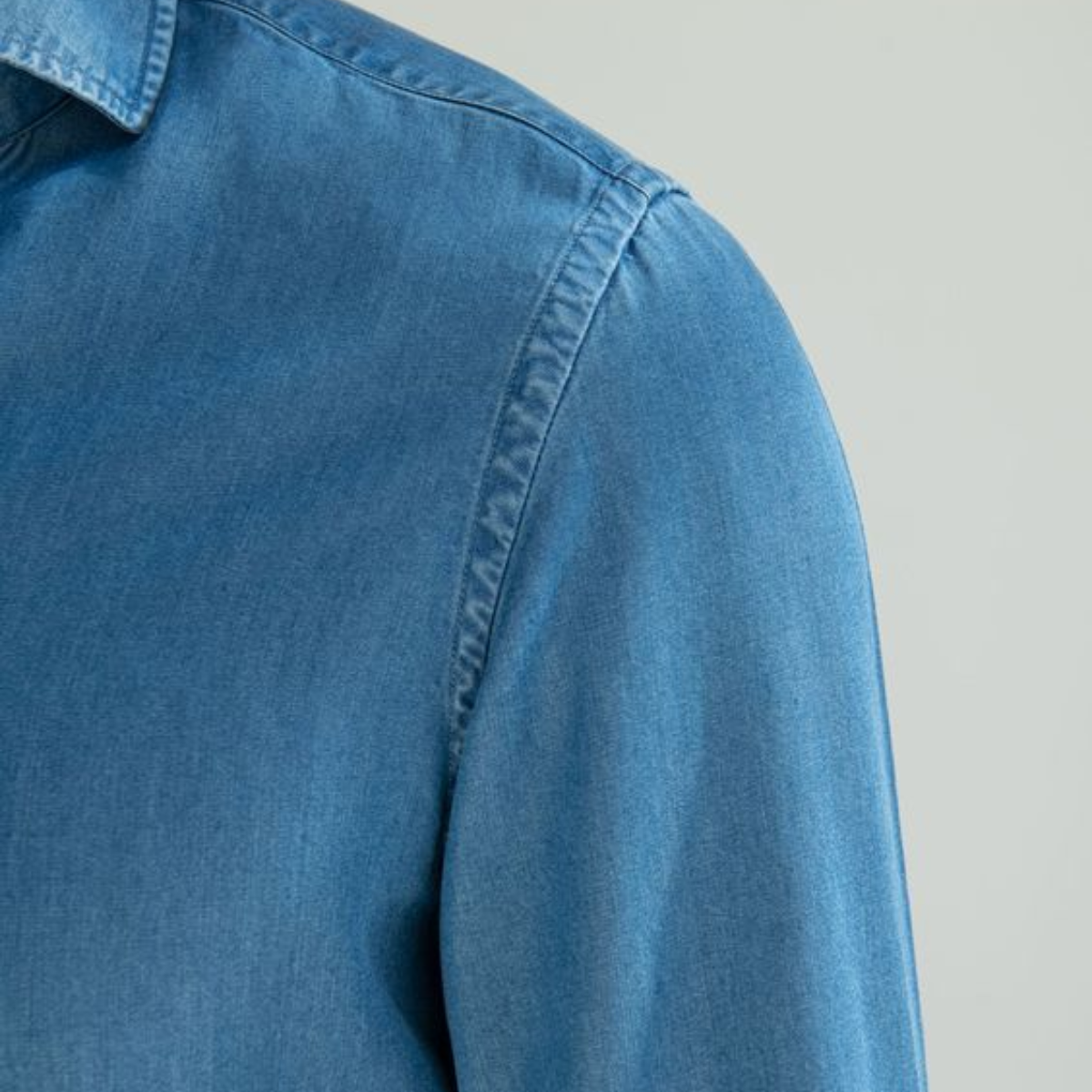
TENCEL™ denim
TENCEL™ denim is made from cellulosic fibres of plant-based origin that are sourced from sustainably harvested wood. Denim containing TENCEL™ Lyocell and Modal fibres are produced using innovative technology with low amounts of water. Lenzing fibres have gained a global reputation for their environmentally responsible, closed-loop production process, which transforms wood pulp into cellulosic fibres with high resource efficiency and low ecological impact. At the end of their life, your TENCEL™ denims will biodegrade when it finally makes its way to landfill.
Fabric Care
Linen
Linen is a plant-based fabric made from flax that happens to be one of the oldest continuously cultivated plants in the world. Flax thrives in pleasant climates and is a resilient plant, requiring few fertilisers or pesticides. Usual rainfall is enough to irrigate cultivations of flax, unlike cotton which can require high volumes of water. In fact, buying a linen shirt instead of cotton will save 13x 1.5 litre bottles of water. Linen can withstand high temperatures, making the fabric ideal for hot summers and is highly moisture absorbent without holding bacteria.
Fabric Care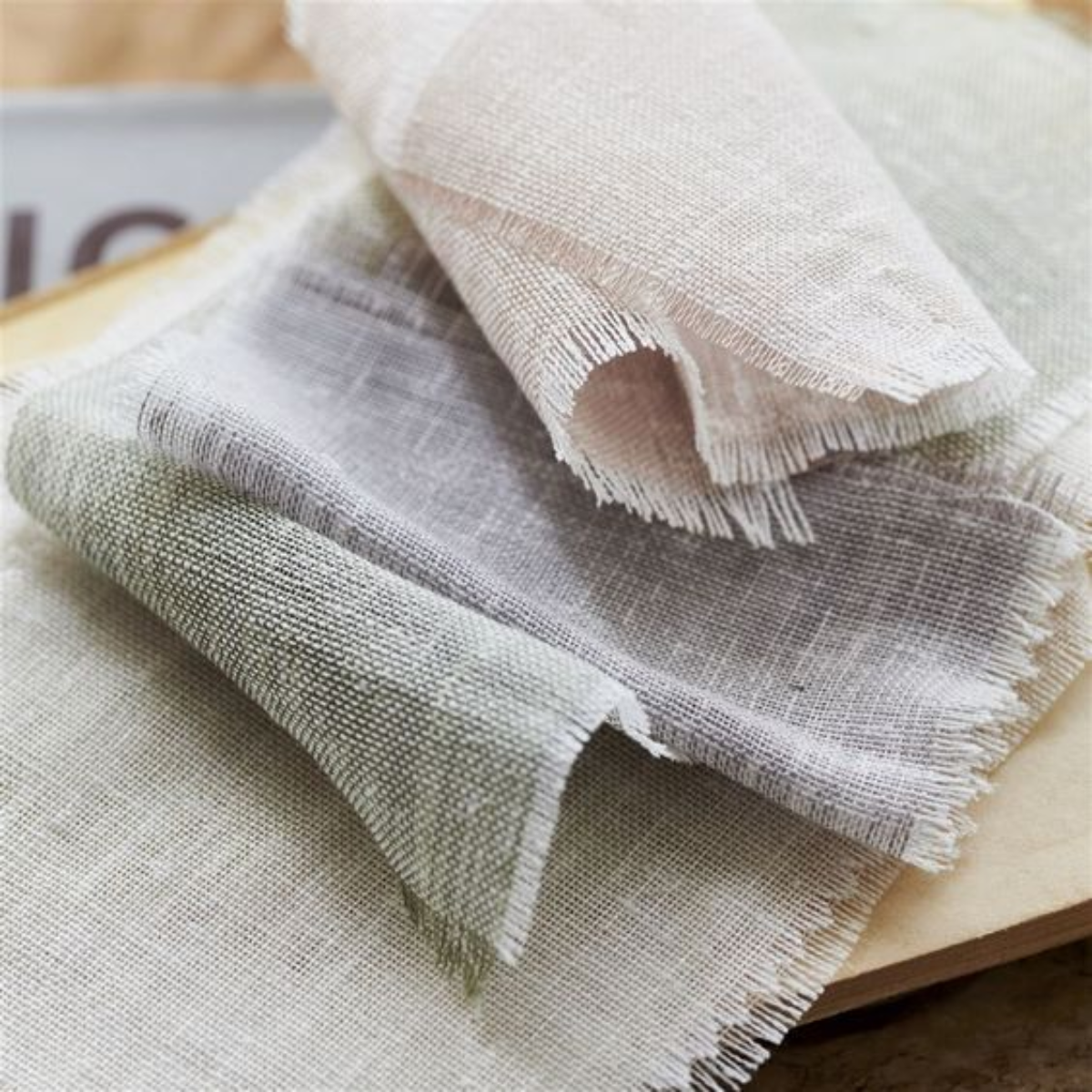
Recycled Polyester
The better alternative to virgin polyester, our recycled polyester material provides all the warmth and insulation that outerwear demands—minus the negative environmental impact. Recycled polyester is made using post-industrial fibre waste and post-consumer plastic (PET bottles and packaging used for many consumer products) that is processed using 80% less energy to recycle, compared to the laborious process of creating virgin polyester from petroleum.
Fabric Care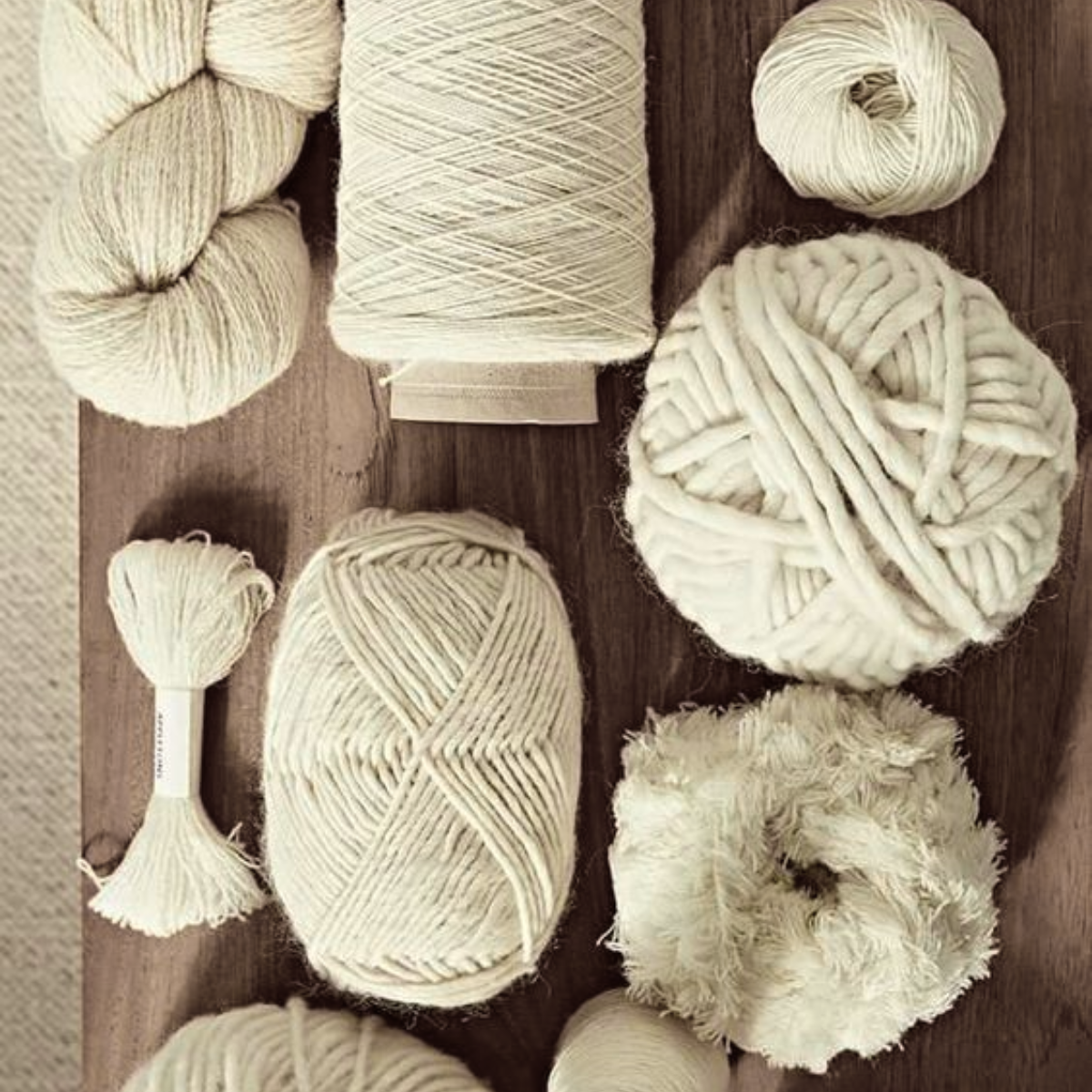
Recycled Wool
By using recycled wool we are decreasing our dependence on excessive chemicals, water and energy, while extending the lifespan of a fibre that has already been produced. Our recycled wool-blend separates come from pre-consumer wool: textile waste created in the production stage that has been blended with other recycled fibres to strengthen and give the material additional thermo-regulating properties.
Fabric Care



